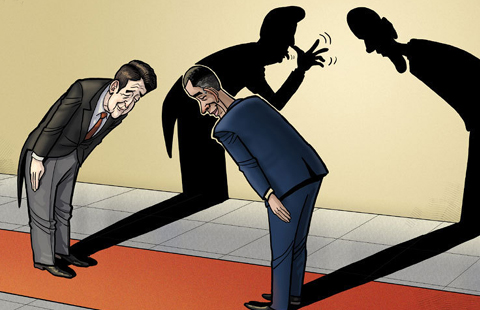Global efforts needed to free Net of attacks
By Tang Lan (China Daily) Updated: 2014-12-26 09:59FBI officers say the virus used in the attack on Sony could break the protection nets of 90 percent of the private enterprises. Besides, extremely destructive viruses such as Flame, DUQU and Stuxnet are on the loose; they can hide in victims' computers stealing information all the while, and emerge to cripple them at a certain time. They pose the gravest threat to cybersecurity.
Some American scholars and lawmakers have already urged the US administration to consider the attack on Sony to be an act of war in cyberspace. In a report last June, the UN Group of Government Experts agreed to apply the existing international law on armed conflicts to cyberspace, and NATO issued a "Tallinn Manual" that extended the laws on war to cyberspace. But since neither document lays out detailed standards of the laws of war in cyberspace, it is necessary for the entire international community to accelerate the drafting of Internet regulations in order to prevent deadly cyberattacks.
In war, there are no winners. This saying applies to cyber war as well. When an enterprise is attacked, it suffers economic losses; when government agencies are attacked, there is chaos; when personal computers are attacked, individual liberty and privacy are challenged. In international relations, targeting enemies in revenge results only in greater losses.
Billions of people and organizations are connected to the Internet and none is immune to cyberattack. No state allows terrorism or crime in cyberspace, but then hackers can use zombie networks to organize attacks against governments and corporations they hate, just like it happened in the case of Sony and the DPRK.
Even China finds itself a victim of the cyberattacks, because the US claims the DPRK gained access to the Internet through China, which implies Beijing could have a role to play in the attack on Sony. What the US has not realized is: As a country that suffers huge losses every year because of hacking, how could China support cyberattacks?
To prevent chaos in cyberspace, it is necessary to strengthen cooperation among states, and between states and enterprises, because they all are obligated to fight hackers together. And for that to happen, the states have to regularly exchange information, and international institutions need to act as coordinators among them.
The author is a researcher at and deputy-director of the Institute of Information and Social Development Studies, China Institutes of Contemporary International Relations.











